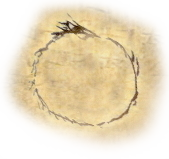On Fairyland
The Lexicon of Fairyland
Fairyland is the realm of the unmanifested made manifest.
The vast majority of you have already been there many times.
Anything known, and many things as yet unknown, are to be found there - or, perhaps I should say, here.
These things, the things of the World, the elves in their own language call "knowns" (and each known , or gnown, is a Canon). So too, each of these we might describe as a definite, and each is to be found etched somewhere within that region many today dub the 'Multiverse', or 'Metaverse' - but these titles are simply vulgar reframings of the Universe that is Fairyland.
Now each known of Fairyland is a named element, entity, creature, existence, concept or construction, within the Ideal Realm: that place where humanity holds converse in it's idylls. These, the knowns, are pronounced into being using tongues - that is spells - which are the workings of those that divine it. Mortals speak of the noun or nouns. These are the named, known things. In Fairyland, it is easier to meet many classes of noun in person, as opposed to the mortal world, where most ideas cannot be directly sensed or take material form.
A popular known is the 'cat'.
To meet 'a cat' is to meet an individual cat - an expression of an animal Umoyar (that is, 'soul' or 'spirit'). It will very likely have a name, for to meet Cat itself - that is, The Cat - is another matter entirely, being that Cat is the God of Cats, you might say: the primordial cat.
Fairyland contains all things at all times. To access any particular time in a particular place is to access a particular activity, and these (activities) are known to the elves as warps (or wrap(s), from whence the wharf(s)). Mortals speak of verbs.
These, warps (that is, 'riffs', in the fae slang) are a key component of the operation of spells and spellcasting.
I can cast the spell (a warp) named run on myself (or a friend) to aid in a speedy sprint across the lands. If I am more skilled in magic, I can instead cast the spell runner (a 'known') to bestow a more permanent ability to run upon the same recipient (that is, in the latter case, to summon the essential form or character of running itself and integrate it within ones' own character for a period of time). Yeah more, I can draw a summoning circle, and cast runner within it, in order to summon or conjure a running spirit - a creature or entity that is the manifestation of the activity of running. Very strange these latter invocations can be, depending on the spell used. Beware of summoning such things as a terror or a pain.
But beware any word, warp, known, or other sort - for though you might be able to pronounce their names, it might be that you know very little of their meanings, or of their being.
It might be argued that calling 'The Runner' within the summoning circle might call upon he that executes reality itself... or perhaps you will call upon yourself - he or she that runs the gauntlet of the Labyrinth of the Fairy Queen.
Ponder: What is it to coin a phrase? And how long is your sentence?
On the risks and potential powers of Fairyland and it's spells, you have been warned.
Now another aspect of the fabric of Fairyland is the weft. These are influences, orthogonal in some respects, to every warp. They might represent modes of activity, or inflections upon the warp. Mortal speak of adverbs and adjectives. These the elves class as two different forms of weft. A weft might also be oppositional (ie. an antagonism). As such a weft can be boon or bane to any essay at a warp.
Now it is said that 'God does not play dice'. But this sage deems this to be false. Life is the great deus game, and dice are rolled at every stage, but the great feat of God (or the Gods) is to have set the stage such that no matter how the the die is cast, the ineffable narrative is moved towards it's finely-sculpted end.
Continue onward to Modeling Activity In Fairyland
